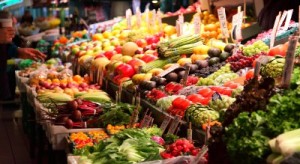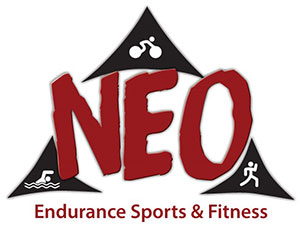I’m always interested in continuing education, so I enrolled in a free online class through Coursera.org via Vanderbilt University called Nutrition, Health, and Lifestyle: Issues and Insights. The topic of this week was plant based diets, and I thought it would be a good idea to share some of the information. While I don’t call myself a vegetarian, over the last few years I have greatly reduced the number of animal products that I consume and have increased the amount of vegetables and fruits and “whole food” products that I eat.
To give an introduction to the topic, Marni Sumbal, MS, RD, LD/N, also a coach and endurance athlete, has given me permission to share an article that she has written that summarizes the topic nicely. At the end of this post, I will also share some of the online resources if you are looking to incorporate more plant-based meals into your diet.

The article originally appeared here: http://904fitness.com/eat-right-your-way-every-day/
Is a meat-free diet right for you?
According to the Academy of Nutrition and Dietetics, “the National Nutrition Month® 2013 theme, “Eat Right, Your Way, Every Day,” encourages personalized healthy eating styles and recognizes that food preferences, lifestyle, cultural and ethnic traditions and health concerns all impact individual food choices. Registered dietitians play a critical role in helping people eat right, their way, every day.”
Have you ever considered reducing, minimizing or eliminating animal protein from your diet? Thanks to hundreds of books written by nutrition-guru’s and experts telling you how to eat, what to eat, what not to eat and how much to eat, “healthy eating” can be confusing when it is aimed to the masses. Therefore, unless you’re eating habits are based on religious, ethical or cultural reasons, it’s important to consider a personalized style of eating that will help to reduce risk for disease, encourage performance gains and/or change body composition. However, with many research-supported guidelines as to what to emphasize when it comes to food choices, a plant-strong diet should not be overlooked for its many health and performance-promoting and disease-preventing benefits. Although it is not necessary for you to avoid meat to be healthy, it is certainly advised to make room for plant-based foods.
Although disappointing to many, you cannot out-train/exercise a poorly planned diet. Therefore, meat or no-meat, it’s important to create a balanced diet, rich in whole foods that will provide your body with a variety of vitamins and minerals. A diet that is not only consists of quality whole grains, fruits, vegetables, healthy fats but also quality protein to support bone and muscle health.
Protein is critical to assist in growth and repair of muscles, bones and tissues along with keeping the hair, skin and nails in good health. Additionally, protein may boost the immune system and keep your metabolism, digestion and brain in optimal health. Most individuals consume adequate protein to keep the body in optimal health. However, depending on your meal planning, relationship with food and activity routine, your protein consumption may be poorly timed and protein choices may be subpar, thus leaving you hungry, sluggish and sore throughout the day.
Because no diet book is without the encouragement of dietary protein, we all know protein is essential to well-being, weight loss and improving health. However, you should not feel overwhelmed as to where your protein comes from as it can be consumed in a heart-healthy way, from both animal and plant sources. However, if you are choosing a meat-free diet (or reducing intake), it’s important to prioritize the most ideal sources of plant-strong protein to help support your individual nutritional and fitness needs. For whenever you eliminate a food (or food group) from the diet, it’s important that you seek a way to help replace the nutrients that you eliminating. In the case of animal protein, zinc, B12 and iron are a few of the nutrients that should be supplemented by a plant strong food source. Therefore, pass on the protein bars and heavily processed “protein-enhanced” factor concoctions and check out the list of plant-strong foods listed below to get you started on a more powerful way of eating.
Regardless if you are a long-time vegetarian or thinking of making the switch to a diet free of meat, a balanced diet will include around 18-25% of your daily calories coming from food rich in quality protein, 25-30% from healthy fat and 50-65% from carbohydrates. For active individuals and athletes, aim for around 1.2-1.8 g/kg body weight of protein per day which will help with recovery as well as optimal health.
Quality protein builds muscle and helps rebuild tissue. Protein amount keeps you satisfied at meal and snack time. Because eggs, dairy and whey are a few lacto-ovo vegetarian options of “complete protein” (containing all nine essential amino acids which are not synthesized within the body), be sure to include variety with your food options in order to encourage consumption of all essential amino acids. Soy beans are not incomplete and therefore, a great plant-strong protein choice.
No matter what type of eating style you prefer, fruits, vegetables, other carbohydrates high in fiber and low in added salt and sugar, healthy fats and high quality protein will provide key vitamins and minerals to your personalized diet. If you consume the right protein at the right time, it doesn’t really matter what you choose to call yourself, so long as you are eating a well-planned, plant-strong, real-food diet.
Types of Vegetarians
Lacto-Ovo Vegetarian No meat or fish, consumes dairy products and eggs.
Ovo Veggie No meat or fish, consumes only eggs.
Pesco Vegetarian No poultry, beef or pork, consumes only fish.
Vegan Omits all foods (and usually products) of animal origin and may consume only raw foods.
Semi Vegetarian Eliminates red meat or occasionally omits meat, fish and/or eggs from the diet. (Usually the first step of becoming a full-time vegetarian or a more practical approach to a heart-healthy diet)
Get started “Plant Strong” vegetarian grocery list
Grains (ex. barley, millet, oatmeal, rye, quinoa, wheat, buckwheat, brown rice, etc.)
Tofu, tempeh
Vegetarian “meat” (ex. Boca, Morningstar)
Beans (ex. black, garbanzo, soy, navy, etc.)
Legumes (lima, lentils, peas)
Vegan (ex. brown rice, pea or soy protein powder)
Hemp (seeds, powder, flour)
Soy milk
Nuts and seeds
Dark, leafy green vegetables (spinach, romaine, kale)
Fortified cereal (ex. Cheerios, shredded wheat)
Nut butter
*Veggies (ex. mushrooms, cauliflower, edamame, sweet corn, brussel sprouts, peppers, watercress, peas, artichokes, etc.)
*Fruits (ex. berries, grapes, mango, grapefruit, pear, banana, orange, melon, grapefruit, cherries, etc.)
Potatoes (ex. sweet, white, red)
*Due to the small amounts of quality protein content, fruits and vegetables should be combined with quality protein-rich foods. (ex. mushrooms with egg whites, beans and veggies or blueberries with cottage cheese)
Sample lacto-ovo/vegan meal plan
Aim for ~20-30g of protein at meal time for optimal digestion and absorption
Breakfast Oats + yogurt (or soy milk) + berries + flax seeds (ground) + cinnamon/ginger/cloves (seasonings) + chopped nuts.
Snack Hardboiled egg (or edamame) + fresh figs or prunes.
Lunch Mixed greens/veggies sautéed in olive oil + protein (ex. lentils, tempeh) topped with a little cheese or avocado. Served with ½ avocado on whole grain tortilla or pita bread.
Snack Apple + nut butter.
Dinner Medium baked or sweet potato topped with Greek yogurt (or grilled tofu) or whole grains (ex. millet, brown rice, quinoa, bulgur) + large salad topped with fruit and seeds (and optional, ½ – 1 ounce cheese).
Dessert/snack 1 ounce dark chocolate + strawberries.
Pre workout Whole grain toast (if stomach sensitive – rice cake) + nut butter + banana slices.
Post workout snack low-fat/non-fat soy milk (or low fat yogurt) + fortified cereal.
Protein content in vegan foods
Tempeh ½ cup: 20 grams
Cooked soybeans ½ cup: 15 grams
Cooked lentils 1 cup: 18 grams
Tofu 4 ounces: 11 grams
Cooked peas 1 cup: 9 grams
Peanut butter 2 tbsp: 8 grams
Almonds ¼ cup: 8 grams
Tahini 3 tbsp: 8 grams
Soy milk 1 cup: 7 grams
Bulgur (cooked) 1 up: 6 grams
Brown rice (cooked) 1 cup: 5 grams
Potato 6 ounces: 4 grams
Thanks again to Marni for letting me share this article. You can also find Marni on facebook.
Here are some additional online vegetarian resources:
International Congress on Vegetarian Nutrition
USDA My Plate Tips for Vegetarians
nutrition.gov Eating Vegetarian






